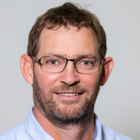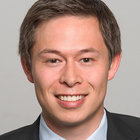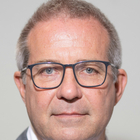Briefing Paper
Post-2015: the EU can contribute more than aid to the global development agenda
Furness, Mark / Heiner Janus / Stephan KlingebielBriefing Paper (7/2013)
Bonn: German Development Institute / Deutsches Institut für Entwicklungspolitik (DIE)
Current discussions about the post-2015 global development framework provide an opportunity to reconsider the European Union’s potential role as a development actor for the coming decades. The EU should aspire to fulfil a post-2015 role that is only partly based on traditional support to developing countries, and that would build on current efforts and explore new ways of supporting global development. Central to this are efforts to reform and create international regimes which are inherently “developmental”.
The EU and several of its Member States are heavily involved in ongoing negotiations on new development goals to succeed the Millennium Development Goals (MDGs) when they expire in 2015. The resulting framework and targets will be very important, but not as important as the broader international context in which global development will proceed.
Poverty reduction is the main focus of the present MDG agenda and will remain a top priority for any new global agreement. The European institutions have been tasked with supporting developing countries since the Treaty of Rome. Building on this tradition, the EU and its Member States have become the world’s largest providers of official development assistance (ODA), thereby playing a part in helping to achieve the MDGs. Against this backdrop, the EU must continue increasing the effectiveness of its aid and advancing Policy Coherence for Development (PCD).
In addition, the EU needs to invest more in order to promote development and remove barriers to development progress at global level. While the reasons for countries achieving or failing to achieve the MDGs are primarily domestic in nature, experience with the MDGs has shown that progress is heavily influenced by the framework conditions for development: the economic, political, geographical and environmental context in which societies and states develop. It is here that Europe's greatest potential to be a force for good lies.
European politics are currently transfixed by the dramas of the Euro crisis and austerity measures, leaving ambitious international cooperation agendas out in the cold. However, there is a bigger picture, and the EU remains vital to this picture because of what it is: a visionary project that has ensured the peace, stability and prosperity of a previously war-torn continent for nearly 70 years.
The EU could drive a genuine global standard setting process if it can direct more energy towards those dimensions of development policy that go beyond aid provision. This means addressing long-standing inconsistencies that undermine the effectiveness of European aid. Even more importantly, it means stepping up efforts to work with partners on improving the development- friendliness of international regimes that govern public policy areas crucial to development progress.
Kontakt
Cornelia Hornschild
Koordinatorin Publikationen
E-Mail Cornelia.Hornschild@idos-research.de
Telefon +49 (0)228 94927-135
Fax +49 (0)228 94927-130
Alexandra Fante
Bibliothekarin/Open Access-Koordinatorin
E-Mail Alexandra.Fante@idos-research.de
Telefon +49 (0)228 94927-321
Fax +49 (0)228 94927-130





